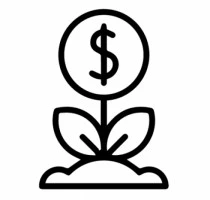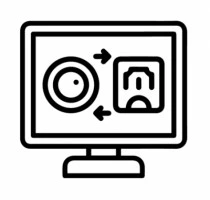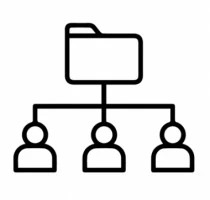 Initiative
Initiative
 Initiative
Initiative
Completing an EFP is an important first step in producing livestock, field and horticultural crops that meet standards for sustainable sourcing. Many large agri-food businesses and major restaurant chains are moving toward only purchasing products that are from sustainably sourced operations. Industry is also responding to this market demand and are seeing the value of the EFP Program for demonstrating a commitment to environmental stewardship. When McCain said they would only purchase products that are sustainably sourced, the Potato Growers of Alberta made completing an EFP a requirement for membership. Alberta Milk require the completion of an EFP as part of their proAction environmental module.
Now companies and producer groups can take it one step further with the launch of the EFP+ Program, which allows a means for making globally recognized sustainability claims and expand into new markets.
As consumers and food industry giants seek out farms that prioritize sustainability – and have the assessments to match, EFP is leading Alberta producers to meet these demands. As sustainable sourcing benchmarking becomes the new normal, the EFP framework and support from local EFP technicians enable producers to meet and even exceed sustainability standards. Producers enrolled in an EFP have found that meeting sustainable sourcing requirements is easier when they have completed the EFP process.
EFP+ is designed for producers within Farm Management Groups, as such there are additional steps that need to be taken by producer groups to make these sustainability claims. We have developed support documents that outline the steps that need to be taken, and which players are responsible for each step. Connect with our team for more information on the EFP+.

The primary purpose of the EFP is education and awareness to assist producers in achieving their operation’s sustainability goals.

FSA is designed for farmers all over the world; whereas the Alberta EFP+ program is designed specifically for producers who operate within the Alberta context.

Each producer is assigned a technician within their region who can help them complete their online workbook and develop and provide feedback on their action plan.

Producers with a current EFP are eligible for certain government cost-share funding programs.

If producers already have an online EFP, upgrading to an EFP+ workbook is easy.

Completing an EFP+, producers receive credit for FSA questions.

Alberta EFP has the governance structure and auditor guidance in place to assist with the verification component of the FSA.

The EFP webbook is full of local resources and tips for implementing their action plan.
The EFP team’s hard work and dedication to our program has allowed us to let all of our customers and industry partners know that we have one of the best sustainability groups in the Industry.
Kerby Heintz, Rahr Malting Co.
We truly appreciate the support of Alberta EFP. Their hard work and dedication have helped showcase the excellence of Alberta’s agricultural producers. Together, we are building a stronger more sustainable future for our industry.
Jennifer Crowson, ASBG Executive Director
The EFP+ program an upgraded version of the standard EFP workbook, but provides the producer with an official equivalency score with SAI Platform’s Farm Sustainability Assessment.
No, only established Farm Management Groups* can make requests on behalf of the producer to complete an EFP+ workbook.
The FSA is widely recognized as a food and drink industry reference for sustainable crop farming. It was created to encourage the industry-wide adoption of better management practices that improve farm performance and sustainability outcomes. https://saiplatform.org/fsa/
The Farm Management Group (FMG) is the organization that organizes and executes the EFP+ program and additional FSA requirements for a group of farms (ex. company purchasing raw products or a commodity group).
EFP+ provides many benefits:
While getting to take advantage of all of the other benefits EFP has to offer:
The EFP Plus workbook is very similar to the EFP standard workbook, with the addition of an FSA chapter, which includes an additional 14 questions.
The EFP questions are mapped to questions in the FSA self-assessment on the back end, making for a seamless experience for producers. Upon approval of the EFP workbook, producers receive an FSA report with their FSA performance score.
A small sample of farms from within a Farm Management Group will have to undergo a verification audit, as will be arranged by the Farm Management Group Coordinator in order to make an FSA claim.
Only approved verification bodies by SAI Platform. https://www.globalgap.org/certification-bodies/
The questions included in the FSA Report will be audited.
This was emailed to you upon approval of your EFP Plus workbook. You can also find a copy under the “My Documents” tab of your EFP Webbook account. https://webbook.albertaefp.com/login/
You should renew your EFP Plus workbook every three years in order to be considered current. Contact us if you need help renewing.
Alberta EFP has developed Auditor Guidance to support the auditor throughout the process. The Auditor Guidance is available upon request from the Alberta EFP office for verification bodies.
The FSA is a toolset developed by SAI Platform for farms and companies in agricultural value chains. It is used to evaluate on-farm sustainability performance, spur continuous farm improvement, support sustainable supply chain goals, and benchmark existing standards, codes, schemes and legislation.
The EFP+ is a version of the Alberta Environmental Farm Plan workbook. Producers complete a locally designed and supported EFP+ workbook, and then receive an official equivalency score with FSA 3.0, while simultaneously getting to take advantage of the benefits of the EFP.
SAI Platform is the FSA scheme owner and manager. It is an organization created by the food industry, and its members develop, maintain, and improve the FSA. Membership comprises of stakeholders of the food and drink industry, including farmer cooperatives, manufacturers, processors, and traders from across the globe.
Means buying goods from suppliers who adhere to a code of practice that reduces the social, economic, and environmental impacts of food production, processing, and distribution. Environmental criteria include soil stewardship, nutrient management, agrochemical use, biodiversity enhancement and protection, and water. Social criteria are composed of human rights, worker conditions, social protection, employment relations, human development and social dialogue. Management criteria include economic viability, sustainable management, and supply chain responsibilities. Ethics criteria include no forced or child labour, prevention of corruption and compliance with legislation
The FMG is a group of farms that implement the FSA together, optionally including the direct buyer of their crop(s). The FMG needs to fulfil FSA requirements to ensure that it is a coherent, engaged, and transparent group of farms. As such, the FMG can undergo an FSA verification audit and the verified performance level result applies to crop(s) produced by the FMG. The FMG is managed by an FMG Coordinator.
The FMG Coordinator is the organization that legally represents the FMG. It is usually a first level aggregator or processor or a cooperative. The FMG Coordinator typically buys raw ag products from farms and is responsible for implementing the FSA. The FMG Coordinator sets up and manages the FSA Management System. The individual responsible for FSA implementation within the FMG Coordinator is referred to as the FMG Manager.
The Continuous Improvement Module is a set of guidance materials and templates to help the FMG Coordinator develop, implement, and monitor a continuous improvement plan for the FMG. The Continuous Improvement Plan will be subject to the FSA Management System audit in case of independent verification of Farm Management Group Performance and is optional for verification at stand-alone farms.
Verification bodies are SAI Platform-approved independent organizations, accredited to perform FSA verification audits and issue FSA Letters of Attestation. Afull list can be found here: https://www.globalgap.org/certification-bodies/
For the purposes of Alberta producers, this is the EFP+ workbook.